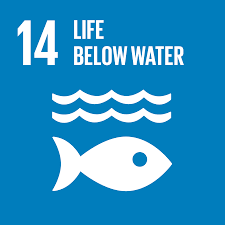
Chair in Zoology
- Email Address
- paul.thompson@abdn.ac.uk
- Office Address
- School/Department
- School of Biological Sciences
Biography
I'm a Professor in the School of Biological Sciences, based at the University's Lighthouse Field Station where my group conducts long-term ecological studies of marine top predators and their responses to environment change.
Our work aims to improve the evidence-base required to sustainably manage protected seabird and marine mammal populations, with a particular focus on interactions with fisheries and offshore energy developments.



Qualifications
- PhD Zoology1987 - University of Aberdeen
Distribution and abundance of common seals
- BSc Biology1982 - University of York
External Memberships
Fellow of the Royal Society of Edinburgh
Latest Publications
Harbour and grey seals: distribution maps for Scotland
Carter, M. I., Bivins, M., Duck, C., Hastie, G. D., Morris, C. D., Moss, S. E. W., Thompson, D., Thompson, P., Vincent, C., Russell, D. J. F.Scottish Government. 34 pagesBooks and Reports: Commissioned ReportsThe role of acoustic telemetry to assess the effects of offshore wind infrastructure on fish behaviour, populations and predation
Bicknell, A. W. J., Gierhart, S., Newton, M., Main, R. A., Thompson, P., Witt, M. J.Renewable and Sustainable Energy Reviews, vol. 212, 115306Contributions to Journals: ArticlesBycatch of northern fulmar (Fulmarus glacialis) in Norwegian longline fisheries: assessing spatiotemporal variations in scale and risk to improve management
Clegg, T. L., Christensen Dalsgaard, S., Bråthen, V. S., Tarroux, A., Danielsen, J., Descamps, S., Follestad, A., Hallgrimsson, G. T., Helberg, M., Helgason, H. H., Jónsson, J. E., Kolbeinsson, Y., Strøm, H., Thompson, P., Thórarinsson, T. L., Williams, T. A., Bærum, K. M.Global Ecology and Conservation, vol. 56, e03350Contributions to Journals: ArticlesSite Condition Monitoring of bottlenose dolphins within the Moray Firth Special Area of Conservation 2017-2022: NatureScot Research Report 1360
Cheney, B., Arso Civil, M., Hammond, P. S., Thompson, P.NatureScot: Scotland's Nature Agency. 39 pagesBooks and Reports: Commissioned ReportsCharacterising underwater noise and changes in harbour porpoise behaviour during the decommissioning of an oil and gas platform
Fernandez Betelu, O., Graham, I., Malcher, F., Webster, E., Cheong, S., Wang, L. P., Iorio-Merlo, V., Robinson, S., Thompson, P.Marine Pollution Bulletin, vol. 200, 116083Contributions to Journals: Articles
Prizes and Awards
Marsh Award for Marine and Freshwater Conservation, 2015
Research Overview
Current research aims to assess how natural and anthropogenic environmental variations influence the behaviour, physiology and dynamics of marine mammal and seabird populations. These questions have been approached by conducting long-term and comparative studies of key populations; primarily in Scottish waters but including some work overseas. These studies have been used to address a range of applied and theoretical questions, often requiring an inter-disciplinary approach and regularly involving collaboration with other research groups both in the UK and abroad. Topics of particular interest have included interactions between wildlife populations and fisheries, the impact of anthropogenic noise on marine mammal biology, seal foraging and breeding strategies, and effects of changing prey stocks and climate change on the population dynamics of marine top predators.
Research Areas

Biological and Environmental Sciences
Research Specialisms
- Ecology
- Environmental Sciences
- Marine Sciences
- Acoustics
- Environmental Impact Assessment
Our research specialisms are based on the Higher Education Classification of Subjects (HECoS) which is HESA open data, published under the Creative Commons Attribution 4.0 International licence.
Current Research
Population ecology of marine mammals and seabirds; individual-based studies of focal populations of northern fulmars, harbour seals and bottlenose dolphins.
Moray Firth Marine Mammal Monitoring Programme [MMMP]; co-produced strategic research and monitoring programme to meet consent conditions for regional offshore wind developments.
PrePARED; consortium project on predator and prey responses to offshore structures, aimed at understanding cumulative environmental impacts and benefits of offshore windfarms.
SEATRACK; international collaboration to understand the at-sea distribution of seabirds in the NE Atlantic.
Knowledge Exchange
Knowledge exchange activities have involved regular consultancy work for industry and contributions to UK and International advisory groups. Current activities include membership of the DEFRA Strategic Underwater Noise Group and a Marine Scotland Strategic Marine Mammal Research Programme Steering Group.
Public engagement activities have built upon work at the Lighthouse Field Station, which has featured in a broad range of TV and Radio programmes and been the focus of Arts-Science collaborations such as SUBLIME.
Collaborations
Population ecology of marine mammals and seabirds; involves collaboration with the University of St Andrews Sea Mammal Research Unit and the University of Bangor.
Moray Firth Marine Mammal Monitoring Programme [MMMP]; involves collaboration with the University of St Andrews Sea Mammal Research Unit and CEFAS.
PrePARED; consortium led by Marine Scotland Science, including University of Exeter, SMRU Consulting, BIOSS, CEH, Nature Scot, Natural England & University of Aarhus.
SEATRACK; collaboration led by the Norwegian Polar Institute, Norwegian Institute for Nature Research and Norwegian Environment Agency. SEATRACK involves multiple partners working at over 50 seabird colonies encircling the Labrador, Greenland, Barents, Norwegian, North and Irish Seas.
Supervision
I've supervised around 25 PhD students who have gone on to work in a wide range of research, conservation and management roles.
You can find out more about their research projects and subsequent careers on the Lighthouse Field Station webpages.
I'm no longer taking on PhD students as a primary supervisor but remain open to involvement in supervisory teams for interesting project that relate to my current interests.
Funding and Grants
2022-2025, The Crown Estate Offshore Wind Evidence and Change Programme, PrePARED
2021-2022, BEIS, Cetacean responses to decommissioning noise.
2014-2022, Beatrice Offshore Wind Ltd, Moray Offshore Renewables Ltd, Marine Scotland, The Crown Estate, Highlands & Islands Enterprise, Marine Mammal Monitoring Programme for Moray Firth windfarm developments
2012-2024, Scottish Natural Heritage, Site condition monitoring for the Moray Firth Special Area of Conservation
2015-2016, DECC, Assessing cetacean responses to pile driving noise
2011-2012, Marine Scotland, Assessment of methods for monitoring marine mammals at marine renewable energy developments
2010-2012, Moray Offshore Renewables Ltd & Beatrice Offshore Wind Ltd, Development of a framework for assessing the impact of windfarm construction marine mammal populations.
2009-2013, DECC, Assessing the impact of seismic survey noise on cetaceans
Teaching Responsibilities
The Lighthouse Field Station research programme has provided unique opportunities for >30 cohorts of UG and PGT students to experience research-led teaching within marine mammal ecology and conservation.
In particular, Cromarty-based Honours and Masters projects have provided unique field-based training opportunities; resulting in a strong record for graduate recruitment and many alumni obtaining important leadership roles in the UK and overseas. Undergraduates can also visit the Field Station for the Biodiversity Field Course (BI25F7).
Several Aberdeen-based courses at levels 1-5 draw upon Lighthouse research, with contributions to Frontiers in Biology (BI1009), Fundamentals in Marine Biology (BI25Z2), Animal Population Ecology (ZO4920), Marine Biodiversity (ZO4820), Marine Conservation Management (ZO5809) and Marine EIA (ZO5510).
Since 2017, I have been developing more online material for blended delivery, and exploring digital approaches to enable virtual access to remote fieldwork. From April 2022, I may continue to appear in some of these digital resources, but my previous teaching commitments will be undertaken by Dr Jo Kershaw.
Page 1 of 20 Results 1 to 10 of 196
Harbour and grey seals: distribution maps for Scotland
Carter, M. I., Bivins, M., Duck, C., Hastie, G. D., Morris, C. D., Moss, S. E. W., Thompson, D., Thompson, P., Vincent, C., Russell, D. J. F.Scottish Government. 34 pagesBooks and Reports: Commissioned ReportsThe role of acoustic telemetry to assess the effects of offshore wind infrastructure on fish behaviour, populations and predation
Bicknell, A. W. J., Gierhart, S., Newton, M., Main, R. A., Thompson, P., Witt, M. J.Renewable and Sustainable Energy Reviews, vol. 212, 115306Contributions to Journals: ArticlesBycatch of northern fulmar (Fulmarus glacialis) in Norwegian longline fisheries: assessing spatiotemporal variations in scale and risk to improve management
Clegg, T. L., Christensen Dalsgaard, S., Bråthen, V. S., Tarroux, A., Danielsen, J., Descamps, S., Follestad, A., Hallgrimsson, G. T., Helberg, M., Helgason, H. H., Jónsson, J. E., Kolbeinsson, Y., Strøm, H., Thompson, P., Thórarinsson, T. L., Williams, T. A., Bærum, K. M.Global Ecology and Conservation, vol. 56, e03350Contributions to Journals: ArticlesSite Condition Monitoring of bottlenose dolphins within the Moray Firth Special Area of Conservation 2017-2022: NatureScot Research Report 1360
Cheney, B., Arso Civil, M., Hammond, P. S., Thompson, P.NatureScot: Scotland's Nature Agency. 39 pagesBooks and Reports: Commissioned ReportsCharacterising underwater noise and changes in harbour porpoise behaviour during the decommissioning of an oil and gas platform
Fernandez Betelu, O., Graham, I., Malcher, F., Webster, E., Cheong, S., Wang, L. P., Iorio-Merlo, V., Robinson, S., Thompson, P.Marine Pollution Bulletin, vol. 200, 116083Contributions to Journals: ArticlesVessel noise prior to pile driving at offshore windfarm sites deters harbour porpoises from potential injury zones
Benhemma-Le Gall, A., Thompson, P., Merchant, N., Graham, I.Environmental impact assessment review, vol. 103, 107271Contributions to Journals: ArticlesDecadal increase in vessel interactions by a scavenging pelagic seabird across the North Atlantic
Darby, J. H., Clairbaux, M., Quinn, J. P., Thompson, P., Quinn, L., Cabot, D., Strøm, H., Thórarinsson, T. L., Kempf, J., Jessopp, M. J.Current Biology, vol. 33, no. 19, pp. 4225-4231.e3Contributions to Journals: ArticlesGlobal assessment of marine plastic exposure risk for oceanic birds
Clark, B. L., Carneiro, A. P., Pearmain, E., Rouyer, M., Clay, T., Cowger, W., Phillips, R. A., Manica, A., Hazin, C., Eriksen, M., Gonzalez-Solis, J., Adams, J., Albores-Barajas, Y., Alfaro-Shiqueto, J., Alho, M., Araujo, D., Arcos, J. M., Arnould, J., Barbosa, N., Barbraud, C., Beard, A., Beck, J., Bell, E., Bennet, D., Berlincourt, M., Conceicao Biscoito, M. J., Bjørnstad, O., Bolton, M., Jones, K. B., Borg, J., Bourgeois, K., Bretagnolle, V., Bried, J., Briskie, J., Brooke, M., Brownlie, K., Bugoni, L., Calabrese, L., Campioni, L., Carey, M., Carle, R. D., Carlile, N., Carreiro, A. R., Catry, P., Catry, T., Cecere, J., Ceia, F. R., Cherel, Y., Choi, C., Cianchetti-Benedetti, M., Clarke, R., Cleeland, J., Colodro, V., Congdon, B., Danielsen, J., De Pascalis, F., Deakin, Z., Dehnhard, N., Dell'Omo, G., Delord, K., Descamps, S., Dilley, B. J., Dinis, H., Dubos, J., Dunphy, B., Emmerson, L., Fagundes, A. I., Fayet, A. L., Felis, J., Fischer, J., Freeman, A., Fromant, A., Gaibani, G., García,, D., Gjerdrum, C., Soeli Gomes, I., Forero, M., Granadeiro, J. P., Grecian, W. J., Grémillet, D., Guilford, T., Hallgrimsson, G. T., Halpin, L., Hansen, E., Hedd, A., Helberg, M., Helgason, H. H., Henry, L., Hereward, H., Hernández-Montero, M., Hindell, M., Hodum, P., Imperio, S., Jaeger, A., Jessopp, M. J., Jodice, P., Jones, C. G., Jones, C., Jónsson, J. E., Kane, A., Kapelj, S., Kim, Y., Kirk, H., Kolbeinsson, Y., Kraemer, P., Krüger, L., Lago, P., Landers, T., Lavers, J., Le Corre, M., Leal, A., Maite, L., Madeiros, J., Magalhães, M., Mallory, M. L., Masello, J., Massa, B., Matsumoto, S., McDuie, F., McFarlane Tranquilla, L., Medrano, F., Metzger, B., Militão, T., Montevecchi, W. A., Montone, R., Navarro-Herrero, L., Neves, V., Nicholls, D., Nicoll, M. A. C., Norris, K., Oppel, S., Oro, D., Owen, E., Padget, O., Paiva, V. H., Pala, D., Pereira, J. M., Péron, C., Petry, M., Pina, A., Pina, A. T., Pinet, P., Pistorius, P., Pollet, I., Porter, B., Poupart, T., Christopher D, P., Proaño, C., Pujol-Casado, J., Quillfeldt, P., Quinn, J., Raine, A., Raine, H., Ramírez, I., Ramos, J. A., Ramos, R., Ravache, A., Rayner, M., Reid, T., Robertson, G. T., Rocamora, G., Rollinson, D., Ronconi, R. A., Rotger, A., Rubolini, D., Ruhomaun, K., Ruiz, A., Russell, J. M., Ryan, P. G., Saldanha, S., Sanz-Aguilar, A., Sardà Serra, M., Satgé, Y., Sato, K., Schäfer, W., Schoombie, S., Shaffer, S., Shah, N., Shoji, A., Shutler, D., Sigurðsson, I. A., Silva, M. A., Small, A., Soldatini, C., Strøm, H., Surman, C., Takahashi, A., Tatayah, R. V., Taylor, G., Thomas, R., Thompson, D., Thompson, P., Thórarinsson, T. L., Vicente-Sastre, D., Vidal, E., Wakefield, E. D., Waugh, S., Weimerskirch, H., Wittmer, H., Yamamoto, T., Yoda, K., Zavalaga, C., Zino, F., Dias, M. P.Nature Communications, vol. 14, 3665Contributions to Journals: ArticlesVariation in foraging activity influences area-restricted search behaviour by bottlenose dolphins
Fernandez Betelu, O., Iorio-Merlo, V., Graham, I., Cheney, B., Prentice, S., Cheng, X., Thompson, P.Royal Society Open Science, vol. 10, no. 6, 221613Contributions to Journals: ArticlesThe effect of climate change on avian offspring production: a global meta-analysis
Hałupka, L., Arlt, D., Tolvanen, J., Millon, A., Bize, P., Adamik, P., Albert, P., Arendt, W. J., Artemyev, A., Baglione, V., Banbura, J., Bańbura, M., Barba, E., Barrett, R. T., Becker, P. H., Belskii, E., Bolton, M., Bowers, E. K., Bried, J., Brouwer, L., Bukacińska, M., Bukaciński, D., Bulluck, L. P., Carstens, K. F., Catry, I., Charter, M., Chernomorets, A., Covas, R., Czuchra, M., Dearborn, D. C., de Lope, F., Di Giacomo, A. S., Dombrovski, V. C., Drummond, H., Dunn, M. J., Eeva, T., Emmerson, L., Espmark, Y. O., Fargallo, J. A., Gashkov, S., Golubova, E. Y., Griesser, M., Harris, M., Hoover, J. P., Jagiello, Z., Karell, P., Kloskowski, J., Koenig, W. D., Kolunen, H., Korczak-Abshire, M., Korpimäki, E., Krams, I., Krist, M., Krüger, S. C., Kuranov, B. D., Lambin, X., Lombardo, M. P., Lyakhov, A., Marzal, A., Pape Møller, A., Neves, V., Nielsen, J. T., Numerov, A., Orłowska, B., Oro, D., Öst, M., Phillips, R. A., Pietiäinen, H., Polo, V., Porkert, J., Potti, J., Pöysä¤, H., Printemps, T., Prop, J., Quillfeldt, P., Ramos, J. A., Ravussin, P., Rosenfield, R. N., Roulin, A., Rubenstein, D. R., Samusenko, I. E., Saunders, D. A., Schaub, M. P., Senar, J. C., Sergio, F., Solonen, T., Solovyeva, D., Stępniewski, J., Thompson, P., Tobółka, M., Török, J., Vernooij, L., Visser, M. E., Westneat, D. F., Wheelwright, N. T., Wiącek, J., Wiebe, K. L., Wood, A. G., Wuczyński, A., Wysock, D., Zárybnická, M., Margalida, A., Halupka, K.PNAS, vol. 120, no. 19, e2208389120Contributions to Journals: Articles
